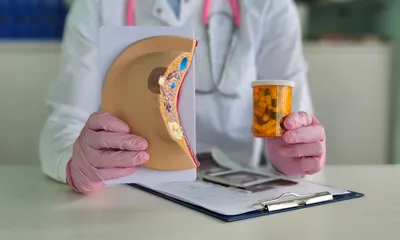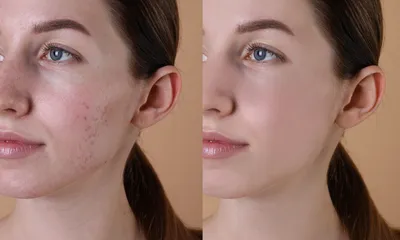Skin Care
-
Description
-
Signs & Symptoms
-
Anatomy
-
Cause
-
Diagnosis
What is Skin Care?
Skin care is any practice you engage in to improve the health and appearance of your skin. It can be for skin anywhere on the body, and it can be as simple as washing your face or hands or as complicated as having a dermaplaning procedure or another type of clinical skin care treatment. Maintaining healthy skin is something that often becomes more of a priority for people as they get older and start to lose the skin vitality they had in their youth.
Both women and men may take an interest in skin improvements, and it is important to remember that diet and hydration are the two factors that will contribute to a person’s skin health. It is best to make sure that they are both addressed before looking at other ways to improve skin health and appearance.
What Are Good Skin Care Products?
Good skin care products will be ones that are primarily made up of organic, all-natural ingredients and containing active ingredients that are known to promote to alleviate skin problems or generally improve skin health and vitality. The maxim that you get what you pay for usually applies for skin care products too, and more expensive ones will be better much of the time.
Your other foremost consideration with what are good skin care products is to ensure that there are no harmful chemical ingredients in them. Low-quality facial peels and other types of skin care products may contain harsh chemicals that will not necessarily damage the skin but may make it extremely dry or appear stressed.
Benefits of Skin Care
Healthier and more youthful looking skin is always going to be first among the benefits of skin care people are hoping to have for themselves. Skin that is cared for long term will likely have fewer visible signs of aging as the person gets older, and the reduction of wrinkles or less predominance of acne or other skin blemish conditions is possible with diligent skin care. Skin that is regularly cared for may also be more resilient and heal better in the event of a wound.
Skin Care Routine
A good skin care routine can start with regular cleanings with an astringent cleaner that will remove oil and other impurities from the skin more effectively than soap will. People with inflammatory skin conditions may want to incorporate a medication like Temovate into their routine, and Lustra Cream may be advisable if the person wants to get rid of dark skin patches or general skin discoloration.
Exfoliating is also a procedure that should be a part of anyone’s skin care routine, as the skin may not be able to slough dead cells effectively on its own and using a loofah brush or something similar to remove dead skin is also recommended when caring for skin. This is particularly true if you are planning to apply a product that needs to be absorbed into the skin.
Signs & Symptoms
- Dryness
- Oily skin
- Acne
- Redness
- Itching
- Rashes
- Flaking or scaling
- Hyperpigmentation
- Wrinkles
- Sunburn
Anatomy
- Epidermis
- Dermis
- Subcutaneous tissue
- Sebaceous glands
- Sweat glands
- Hair follicles
- Blood vessels
- Collagen fibers
- Elastin fibers
Cause
- Genetics
- Environmental factors
- Hormonal changes
- Poor diet
- Stress
- Dehydration
- Allergic reactions
- Infections
- Medications
- Sun exposure
Diagnosis
- Physical examination
- Medical history review
- Skin biopsy
- Allergy testing
- Blood tests
- Patch testing
- Hormone level tests
- Microscopic examination
- Culture tests (for infections)



